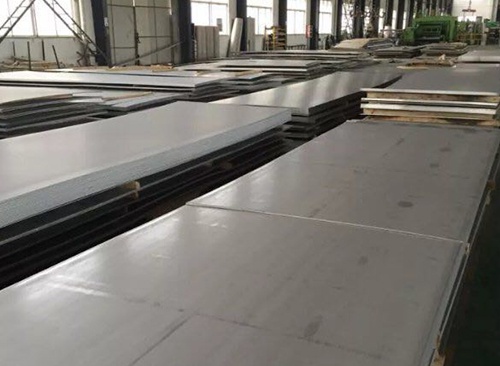
Havnes 188 alloy overview:
188 alloy is a solid solution strengthening material, which has excellent high temperature strength and good processability at room temperature. Long working time at 650 ° C and higher. The strength of alloy 188 is better than other nickel-based solid solution strengthened alloys, far exceeding the ordinary nickel-chromium or iron-nickel-chromium heat-resistant alloy. If these materials are replaced with 188 alloy, the use of materials can be greatly reduced.
Havnes 188 alloy chemical composition:
|
C |
Mn |
La |
B |
Si |
Cr |
Ni |
Fe |
Co |
W |
|
0.10 |
1.25 |
0.03 |
0.015 |
0.35 |
22.0 |
22.0 |
3.0 |
39 |
14.0 |
Havnes 188 alloy processing, heat treatment and application
1. Excellent high temperature strength and environmental resistance
Alloy 188 contains cobalt, nickel, chromium, and tungsten. Its high-temperature strength is very good. When it is placed at a high temperature of 1095 ° C for a long time, it still has good oxidation resistance and can effectively resist the hot corrosion of sulfur-containing precipitates. It can be processed by traditional techniques and can also be used for casting parts.
Easy to process
Alloy 188 has good forming and processing characteristics. Can be forged or hot worked. Hot working requires holding the workpiece at 1175 ° C for a long enough time to ensure that the entire workpiece reaches this temperature. Because the material has good ductility, 188 alloy can be cold worked. Because this alloy has the characteristics of rapid cold work hardening, it requires multiple inter-procedure annealing when processing complex parts. Both hot-worked and cold-worked parts need to be annealed and cooled quickly to restore the properties of the material.
This material has good limited welding characteristics. It can be welded manually or automatically, including TIG, MIG, electron beam welding, and resistance welding.
Heat treatment
Forged 188 alloy is usually supplied in the solid solution state. The conventional heat treatment method is 1175 ° C +/- 14 ° C solution treatment and then rapid cooling or water quenching to achieve the best performance. Annealing at a temperature below the solution temperature will cause some carbide precipitation, which will affect the properties of 188 alloy.
4. Various supply shapes
188 alloys are available in thick plates, sheets, strips, blocks, rods, wires, and tubes.
5. Application
It is widely used in the aviation industry to manufacture combustion chambers, ducts, and after-gas parts for military and commercial gas engines.
Zh
Havnes 188 alloy welding
Alloy 188 is suitable for a variety of welding methods, including TIG, MIG, arc welding (coated electrode), electron beam welding and resistance welding. The welding performance of alloy 188 is similar to that of alloy 25. Submerged arc welding is not recommended.
1. Preparation of base metal
Before welding, thoroughly clean the welding surface and adjacent surfaces. Oil stains, chalk marks, sulfur compounds and other foreign matter must be completely removed. Do not touch the copper or copper-containing materials in the soldering area. The material is preferably in the solution-annealed state during welding, but it is not necessary to be in this state.
2. select solder
The use of matching solder is recommended. 230-WTM solder is recommended when the weld profile thickness is greater than 9.5mm. For coated metal arc welding, a 25 alloy electrode (AMS5796) is recommended. Welding of dissimilar metals, such as 188 alloy and nickel-based alloy, cobalt-based alloy, iron-based alloy, 188 alloy, 230-W wire, 556TM alloy, Hastelloy S (AMS5838) or Hastelloy W (AMS5786 5787) for soldering products.
3. Preheating, interlayer temperature and post-weld heat treatment
If the welding temperature of the base metal is higher than 0 ° C, preheating is generally not required. Interlayer temperatures are usually lower. If necessary, auxiliary cooling methods can be used between the weld beads, but the cooling treatment cannot bring in pollutants. 188 alloy does not require post-weld heat treatment.
Special alloy materials commonly used in the energy industry:
Stainless steel: 254SMO, 654SMO, F44, 2205, 2507, etc.
High-temperature alloy: GH4049
Nickel-based alloys: Alloy 59, Hastelloy B, Inconel 718, Nickel 201, Hastelloy C, etc.
Corrosion-resistant alloys: NS333, NS334
Shenzhen Zhengjie Metal Material Co., Ltd.
Contact person: Mr. Huang (13480167607)
Sales Hotline: 0755-81718772
Q Q: 2263040115 305084123
Website: www.szzj168.com
Email: 2263040115@qq.com
Address: No. 8, Songzi Park, Minzhi, Longhua New District,Shenzhen